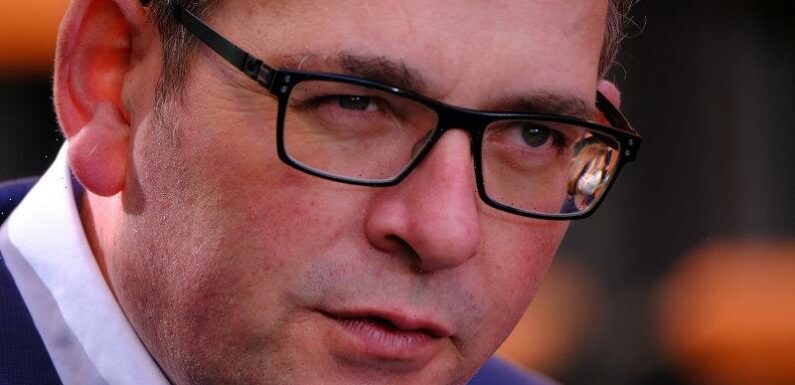
In the lead-up to November’s state election, many voters will be asking themselves a threshold question: am I so tired of Andrews – his face and his voice and his personality – that I want to vote for something else? In other words, after eight years of him as premier, am I sick of the bloke?
Politics is an emotional business. Most of us like to see ourselves as rational beings, calmly weighing up the pros and cons of policies and proposals on the way to forming a judgment. But we can find ourselves making judgments based on our feelings too.
Daniel Andrews became an increasingly divisive figure during the pandemic.Credit:Luis Ascui
The pandemic highlighted and intensified the emotional component of politics. A couple of elements were at work. A focus on leaders, and an attendant decline in attention given to sustaining cabinet processes and an independent public service, has been increasing steadily for several decades now. But the fear of the virus and the ongoing trauma of lockdowns, with Andrews out front as the government’s daily spokesman, only served to deepen that focus.
This gave Victorians a long series of massive doses of Andrews – his demeanour, his view of the world, his steamroller style of arguing a case and governing. It was like a decade’s worth of exposure to a political leader in a couple of years. Predictably, public attitudes towards Andrews hardened in both directions: ever-greater numbers of Victorians either admired or loathed him.
There were echoes of those intense lockdown days last week when Andrews engaged with the controversy triggered by Essendon’s appointment of Andrew Thorburn as its CEO and Thorburn’s subsequent resignation over his role as chair of the City on a Hill church. Andrews himself became part of the controversy, not so much because of what he said as the way he said it. The premier had every right to say something. As the state’s political leader, that’s part of his job.
He could have made his point, repudiating the homophobic and anti-abortion stances contained in the church’s sermons, firmly, with qualifiers and nuance. Probably, in the past, he would have. But that’s not how he rolls these days. Now, he goes in with guns blazing.
There were potential political advantages in taking this approach. The ALP is trying to stave off the Greens in its remaining inner-city seats, especially Northcote and Richmond, and he needed to remind wavering Labor voters of his progressive credentials. He knew he could get a rise out of Matthew Guy, and did. Then Peter Dutton chipped in, which was a bonus, given that he’s hardly Mr Popular among Victorian voters.
But Andrews also looked like a longstanding leader whose immediate professional environment isn’t brimming with individuals who would feel comfortable taking him aside and recommending he tone things down a bit. He was letting it rip because, with most of his seasoned colleagues in the departure lounge, he could. Brand reinforcement or self-sabotage? We don’t know yet.
The heightened concentration on the incumbent’s personality as a possible vote-changer doesn’t mean that policy can’t have a significant role in determining the election outcome. Setting aside whatever the opinion polls suggest, this campaign is shaping a genuine policy contest. It’s encouraging to see the Liberals running on real proposals rather than superficial scare campaigns as they did in 2018.
The health and hospital arms race – at last count involving a total of $23 billion in major party promises – seems to have exhausted itself. Shortcomings in the performance of the health system must loom as a point of vulnerability for the government. How could it be otherwise after Labor has held office for 19 of the past 23 years? Labor is hoping the duelling promises and their eye-watering price tags will cancel each other out. Now the campaign moves to the cost of living, with the opposition’s politically clever promise of discounted public transport fares the first big shot in that battle.
But there’s a good chance that this is an unusual election chiefly because of the lasting trauma of the pandemic, in which the policies – as vital as they are – provide an essential backdrop to that definitive question about which leader an exhausted and unsettled population wants to entrust with the reins of power for the next four years.
The Opinion newsletter is a weekly wrap of views that will challenge, champion and inform your own. Sign up here.
Most Viewed in National
From our partners
Source: Read Full Article
